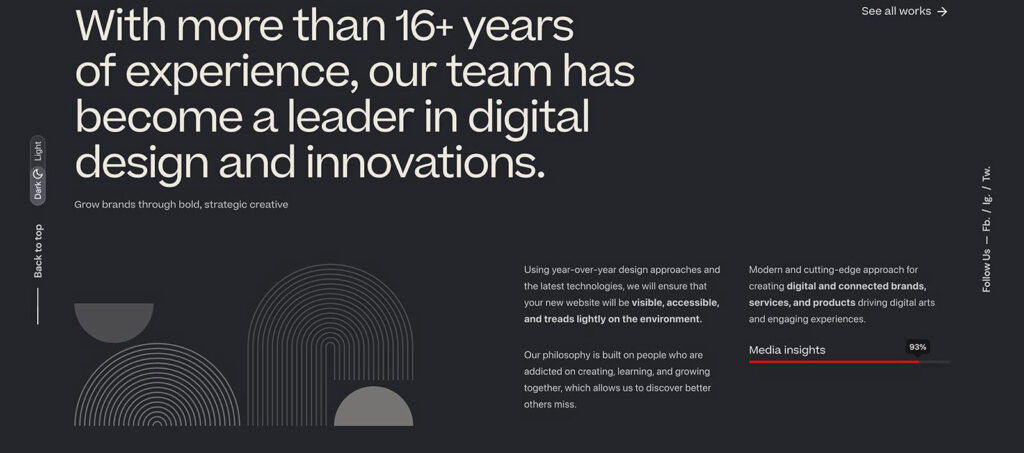No products in the cart.
Ecommerce has skyrocketed over the last 3 years, thanks mainly to the COVID-19 pandemic that pushed millions more consumers to shop online. Everyone expects the popularity of online shopping to continue, with worldwide retail e-commerce sales forecast to grow from $5 trillion to over $8 trillion by 2026.
It’s not surprising that the number of online sellers and ecommerce small businesses has mushroomed too. Many ecommerce businesses are enjoying positive growth, but there’s no guarantee that every online business is going to succeed. Customer expectations keep changing, new challenges appear, and the competition is always present to try to trip you up.
But ecommerce business owners who know what to expect in 2023 can position themselves for success. When you know which trends are on their way, you can prepare your business to take advantage of upcoming opportunities and reduce damage from potential risks. That’s why we’ve gathered a list of 9 top ecommerce trends that experts are predicting for 2023.
1. Omnichannel is everything
2023’s shoppers don’t feel limited by a single device or channel. They expect to research products, compare prices, and complete a sale seamlessly across channels, and to flip between devices without losing their place in the purchase journey.
Other channels include BOPIS (Buy Online Pay In Store), and in-store experiences like the Apple store, where consumers interact with Apple products but order online for home delivery. Voice shopping and voice search are also growing, especially for homewares, groceries, and low-cost electronics.
2. Social commerce is growing
Social media is increasingly popular as a place to discover new products and complete sales, thanks to features like Shoppable Instagram. Social commerce sales forecast to grow from $992 billion in 2022 to $2.9 trillion by 2026. Gen Z uses TikTok more than Google for product recommendations, and 48% of people could buy items directly from TikTok.
3. Customer service has to meet new standards
Your customers want fast responses to queries, and they want to use familiar channels like WhatsApp, Instagram, and Facebook Messenger. More ecommerce businesses are adopting chatbots, so they can deliver excellent customer support 24/7.
Customers are also looking for flexible returns, with 67% of shoppers saying they check the return policy before they buy. Total visibility into the order is important too. They want to be able to track the progress of their package and receive updates about arrival times — and it goes without saying that it has to arrive on time.
4. Augmented reality meets ecommerce
Many people who shop online want some reassurance that they’ll love the product when it arrives. Clever ecommerce brands like Kipling, Warby Parker’s, Zappo’s, and Sephora are adopting augmented reality to create immersive interactions that let people “try on” clothing, glasses, or makeup before they place an order. IKEA even has an app to see how furniture would look in your home.
5. Payment options are multiplying
Today’s shoppers want to be able to pay seamlessly on any device, using digital wallets like Apple Pay and Google Pay, and often even cryptocurrencies. Online sellers need to be able to accept a range of payment methods, including flexible Buy Now Pay Later (BNPL) options like Klarna.
At the same time, they have to reassure customers that their payment information is safe from hackers. Fortunately, Payoneer’s payment acceptance solution, Payoneer Checkout, enables secure, frictionless payments through many different payment methods.
5. Sustainability is on the shopping list
In 2023, consumers are far more willing to pay more for eco-friendly products, and seek out ethical brands that match their values. Shoppers also look for online businesses that sell sustainable or fair trade products, provide green and/or minimal packaging, offer sustainable shipping options, and/or make it easy for them to recycle or refill items.
6. Shoppers are looking for second hand sales
There’s a rising trend of shoppers looking online for secondhand and pre-used items, partly due to interest in sustainability, and partly because growing inflation is pushing consumers to find ways to save money.
Secondhand ecommerce is particularly strong in categories like clothing, books, shoes, and bags. Many consumers go straight to secondhand marketplaces like ThredUp, eBay, PoshMark, and Alibris to hunt for pre-loved bargains.
7. Personalization
Ecommerce may have taken over from bricks and mortar stores, but consumers haven’t lost their love of getting recommendations from a store assistant who knows their preferences, size, and shopping habits. They want the same experience online, with personalized shopping suggestions, promotions, and content that addresses them by name and understands their tastes.
8. Mobile shopping
Last but not least, mobile shopping is still growing in popularity. It’s not a new trend, but it is expected to be bigger than ever in 2023. It’s predicted that global m-commerce retail sales will reach close to $4.5 trillion, or 69.9% of total retail ecommerce sales.
This makes it vital to design online stores for mobile first experiences, not just responsive or mobile-also. Ecommerce businesses also need to adopt phone-friendly payment options like Apple Pay or Google Pay.
Ecommerce excellence is always on trend
Whatever trends come your way, Payoneer is here with payment solutions to help you make the most of the ecommerce market and ensure that your business keeps expanding. Ecommerce small business owners that keep in mind ecommerce trends like omnichannel, personalization, sustainability, social commerce, and excellence in customer service, can look forward to a year of strong revenue in 2023.
Source: Payoneer



